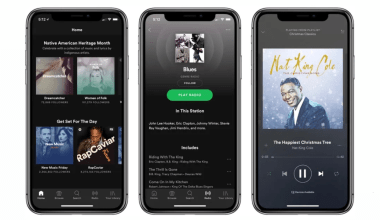When it comes to audio formats, terms like MP3 and WAV are well-known. However, another important format you may have come across is OGG. You might be wondering, “What is the full form of OGG in audio?” OGG stands for “Ogg Vorbis,” a container format primarily used for multimedia streaming and audio compression. Unlike proprietary formats like MP3, OGG is an open-source and free alternative that provides high-quality audio with efficient compression.
What Does OGG Stand For?
The term “OGG” originates from the phrase “Ogging,” a reference to a maneuver in the video game Netrek. It was adopted as a playful term for the technology. “Vorbis” refers to the audio compression layer used within the OGG container. Together, OGG Vorbis represents a high-quality, open-source audio format designed for efficient multimedia streaming.
Why Was the OGG Format Created?
The OGG format was developed by the Xiph.Org Foundation as a free alternative to existing proprietary formats. At the time of its creation, audio formats like MP3 and AAC were widely used but came with licensing restrictions. OGG was designed to be:
- Open Source: Anyone can use and modify it without worrying about royalties.
- Efficient: Offers excellent audio quality at smaller file sizes.
- Flexible: Supports multiple tracks, metadata, and other multimedia components.
This makes OGG particularly useful for developers and content creators who want a versatile and cost-effective audio solution.
How Does OGG Work?
OGG is both a container format and a framework for audio encoding. Here’s how it functions:
- Container Format: The OGG container can store audio, video, text, and metadata. This makes it suitable for multimedia applications.
- Compression: The Vorbis codec compresses audio data, reducing file sizes while maintaining sound quality. This is why it competes with MP3 and AAC.
- Streaming: OGG is optimized for streaming, allowing for smooth playback even over limited bandwidth.
Advantages of Using OGG in Audio
OGG has several benefits, which make it stand out among other audio formats:
1. High-Quality Audio
OGG Vorbis delivers near-CD quality sound even at lower bitrates. This means you can enjoy rich audio without large file sizes.
2. Open-Source Licensing
Unlike MP3 and AAC, OGG is free to use. There are no royalties or licensing fees, making it ideal for developers and companies.
3. Efficient Compression
OGG offers better compression than MP3. A 128 kbps OGG file often sounds better than an MP3 file at the same bitrate.
4. Versatility
OGG can store more than just audio. It supports text (like subtitles) and video, making it a multi-purpose container format.
5. Streaming Compatibility
OGG files are highly optimized for streaming applications, ensuring seamless playback on supported platforms.
Comparing OGG With Other Audio Formats
1. OGG vs. MP3
- Audio Quality: OGG provides superior quality at equivalent or lower bitrates.
- Licensing: OGG is royalty-free, while MP3 requires licensing for commercial use.
- File Size: OGG achieves smaller file sizes without compromising quality.
2. OGG vs. AAC
- Audio Quality: Both formats are efficient, but OGG offers better performance in low-bitrate scenarios.
- Device Compatibility: AAC is widely supported on devices, whereas OGG is less universal.
3. OGG vs. FLAC
- Compression: FLAC is a lossless format, meaning it retains all audio data. OGG, being lossy, sacrifices some data for smaller file sizes.
- Use Case: Use FLAC for archiving and OGG for streaming.
Popular Uses of OGG Format
OGG is widely used in the following areas:
- Streaming Platforms: Several streaming services use OGG for its efficient compression and high quality.
- Gaming Industry: Game developers often incorporate OGG files due to their flexibility and size efficiency.
- Podcasting: Many podcasters use OGG for distributing high-quality audio content without large files.
- Open-Source Projects: OGG is a staple in open-source applications because of its royalty-free licensing.
Disadvantages of the OGG Format
Despite its advantages, OGG has a few drawbacks:
- Limited Device Support: While many modern devices support OGG, it is not as universal as MP3 or AAC.
- Lack of Popularity: OGG is less well-known among general users, which can limit its adoption.
- Complexity for Beginners: The format’s open-source nature might be intimidating for those unfamiliar with audio technology.
How to Convert Audio Files to OGG
There are several tools available for converting other audio formats to OGG:
- Audacity: A free, open-source audio editor that supports OGG conversion.
- VLC Media Player: Allows you to convert files to OGG in a few simple steps.
- Online Converters: Websites like Online Audio Converter offer easy OGG conversions.
Future of the OGG Format
As streaming technology advances, OGG remains a valuable option for developers and creators. The format’s open-source nature ensures continued updates and improvements. While it may not replace MP3 or AAC on all devices, it will likely retain its niche in gaming, open-source projects, and streaming platforms.
FAQs About OGG Full Form in Audio
1. What is the full form of OGG?
OGG stands for “Ogg Vorbis.” It is a container format combined with an audio compression layer.
2. Is OGG better than MP3?
Yes, OGG often delivers better audio quality at equivalent bitrates compared to MP3.
3. Where is OGG used?
OGG is used in gaming, streaming, podcasting, and open-source projects.
4. Can I play OGG files on all devices?
Not all devices support OGG natively, but you can use software like VLC Media Player to play OGG files.
5. Is OGG a free format?
Yes, OGG is open source and free to use without any royalties.
Conclusion: Why OGG Matters in Audio Technology
The OGG format is a powerful tool in the world of digital audio. Its combination of high quality, efficient compression, and open-source licensing makes it a valuable option for developers, content creators, and everyday users. While it may not have the universal recognition of MP3, OGG’s features and benefits ensure its continued relevance in the digital age.
Related Articles:
For further reading, explore these related articles:
- How to Become a Successful Music Artist in India in 2024?
- Understanding YouTube Song Copyright: Everything You Need to Know
For additional resources on music marketing and distribution, visit Deliver My Tune.





